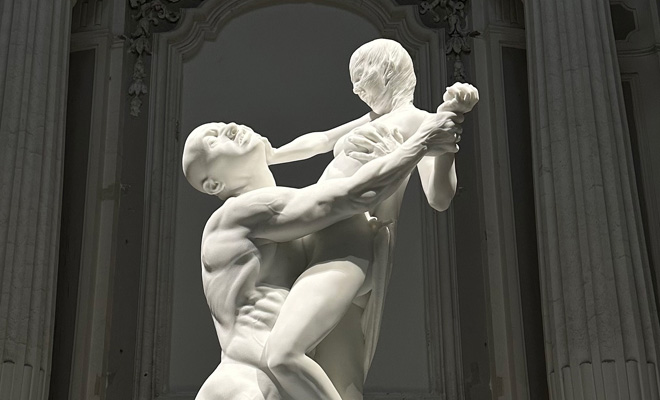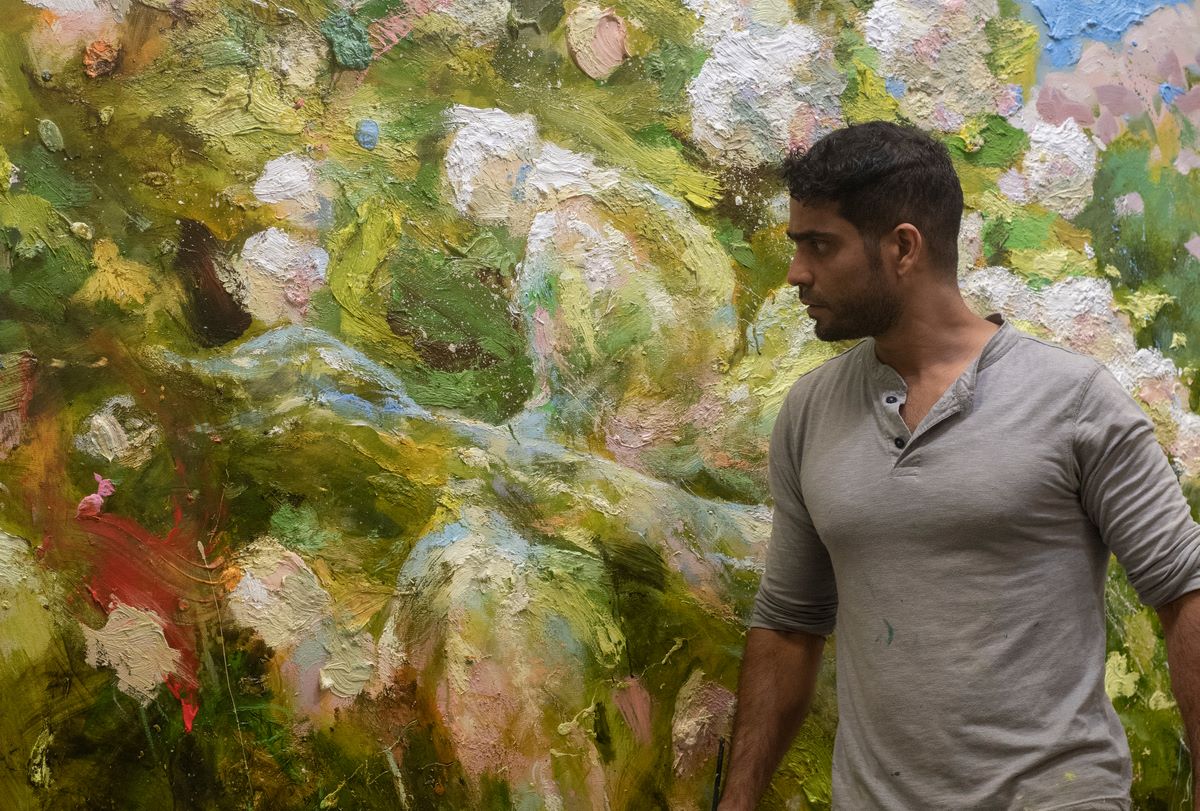The exhibition, ‘This Is Not My Tree’, considers several questions. First, how new species change and destabilize the ecosystem and over time assimilate into hierarchical groups, irrevocably changing them while simultaneously adapting to the existing conditions. Second, how migration stories of our times mirror these environmental movements and how artistic works could show these complex processes. Third, why and where do we feel at home and what is an ecosystem on our human, every-day, level.

As globalization is showing its alternative face, we are faced with the collective question of where do we belong and how we know it. If until now we, almost blissfully, lived in a dream of integration and connectivity we are forced to once again reevaluate our notions of territoriality, control, and parameters of trust. In the presented works natural habitats stand in for human ecosystems, some of them being welcoming and open, others prejudiced, discriminating, and punishing.

Mosen Binnalee, Waterlilies, (2020), still from video, 10:00
Considering nature and environmentalism as part of social theory is necessary if we want to have a more rounded understanding of human journeys. Presented artists come from Israel, Georgia, Saudi Arabia, the United States, and Colombia, but all of them share either immigrant past or present and find connection with natural environment as their main metaphor.
Participating artists include Yael Azoulay, Eli Barak, Omer Ben-Zvi, Mosen Binnalee, Delano Dunn, Jan Dickey, Michal Geva, Jon Gomez, Lia Kim Farnsworth, Tamara Kvesitadze, Netta Laufer, Dana Levy, Pedro Mesa and Mark Tribe.

All fourteen artists recognize the uncertain and precarious time we are inhabiting. Nature of borders is changing affecting our understanding of belonging, social and natural ecosystems, native and invasive species, mechanisms of adaptation. By looking at flora and fauna in a larger social context we are able to have a novel discussion of where we are as human species.
For more information, please see: https://www.narsfoundation.org/2021_exhibitions/this-is-not-my-tree



